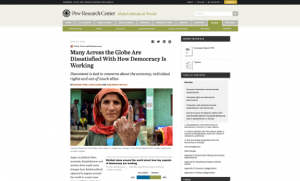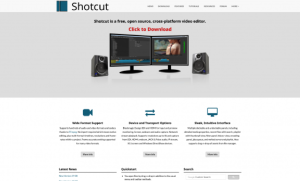General Interest
Back to Top
|
 |
|
Weather Spark
|
Science |
|
Travelers of both the armchair and in-person varieties, as well as weather enthusiasts, may appreciate Weather Spark, a wonderful website that offers detailed summaries of "the typical weather anywhere on Earth." From the home page, readers are invited to enter a location in the search bar or to choose among major cities such as Hong Kong and Chicago, and they can also search via an interactive map or view a randomly selected place. Each location in Weather Spark's database has a vast amount of information concisely presented through colorful graphics and text descriptions, including average temperatures, humidity, solar energy, and much more, with reports available for a yearly, monthly, or daily timeframe. Visitors can also compare the average weather for multiple locations simultaneously. Made with a global user base in mind, Weather Spark allows visitors to display temperatures in Fahrenheit or Celsius and can be viewed in eight languages in addition to English. The reports provided here are primarily "based on a statistical analysis of historical hourly weather reports and model reconstructions from January 1, 1980 to December 31, 2016," and links to their other data sources are included. Weather Spark is the creation of Cedar Lake Ventures, a small company based in the Minneapolis area. [JDC] |
|





|
|
 |
|
 |
|
Community for Advancing Discovery Research in Education (CADRE)
|
Science |
|
STEM educators, administrators, and others with an interest in STEM education research may want to check out the Community for Advancing Discovery Research in Education, or CADRE for short. Describing itself as "a network for STEM education researchers," CADRE is a project led by the nonprofit Education Development Center to support researchers funded through the National Science Foundation's (NSF's) Discovery Research PreK-12 (DRK-12) program. Here, CADRE shares the findings, publications, and output materials created by hundreds of DRK-12 research projects on various aspects of STEM education, as well as resources for early career researchers and prospective grantees, creating a wealth of valuable content. Visitors may like to begin by looking through the Projects, which can be filtered and browsed by target audience (e.g. informal educators, preservice teachers), products (e.g. curriculum, database), project focus (e.g. mathematics, accessibility), and project type (e.g. qualitative, case study). Additionally, the Early Career section provides a collection of resources on topics like writing for publication and building professional networks, while the Resources section offers helpful toolkits on writing NSF proposals, project management, and disseminating research, as well as a large collection of spotlights on various STEM topics. [JDC] |
|





|
|
 |
|
 |
|
Philosophy @ the Virtual Museum
|
Arts |
|
Philosophy @ the Virtual Art Museum uses works of art to inspire classroom philosophical discussions for high school students. The website is made up of six units: Portraits, Landscapes, Expressionism, Abstract Art, Conceptual Art, and Photography. Every unit contains three or four related works of art, each accompanied by a series of thought-provoking questions. For example, the portraits section includes portraits like John Singer Sargent's Portrait of Madame X, 1884 and Kehinde Wiley's Michael Borges Study, 2008, with questions such as, "What strikes you about this portrait?" and suggestions for asking students how knowing the gender of the sitter, the context of the picture, or the sitter's relationship to the artist might change their view of the portrait. Each unit is available as a printable PDF, which should prove especially helpful to teachers. Under More, visitors can also find links to additional resources, such as Standford Online Encycolpedia of Philosophy articles and podcasts on relevant topics. Philosophy @ the Virtual Art Museum was created by Tom Wartenberg, an emeritus philosophy professor at Mount Holyoke. The site can be viewed in Spanish, Chinese, and German, as well as English. [DS] |
|





|
|



















